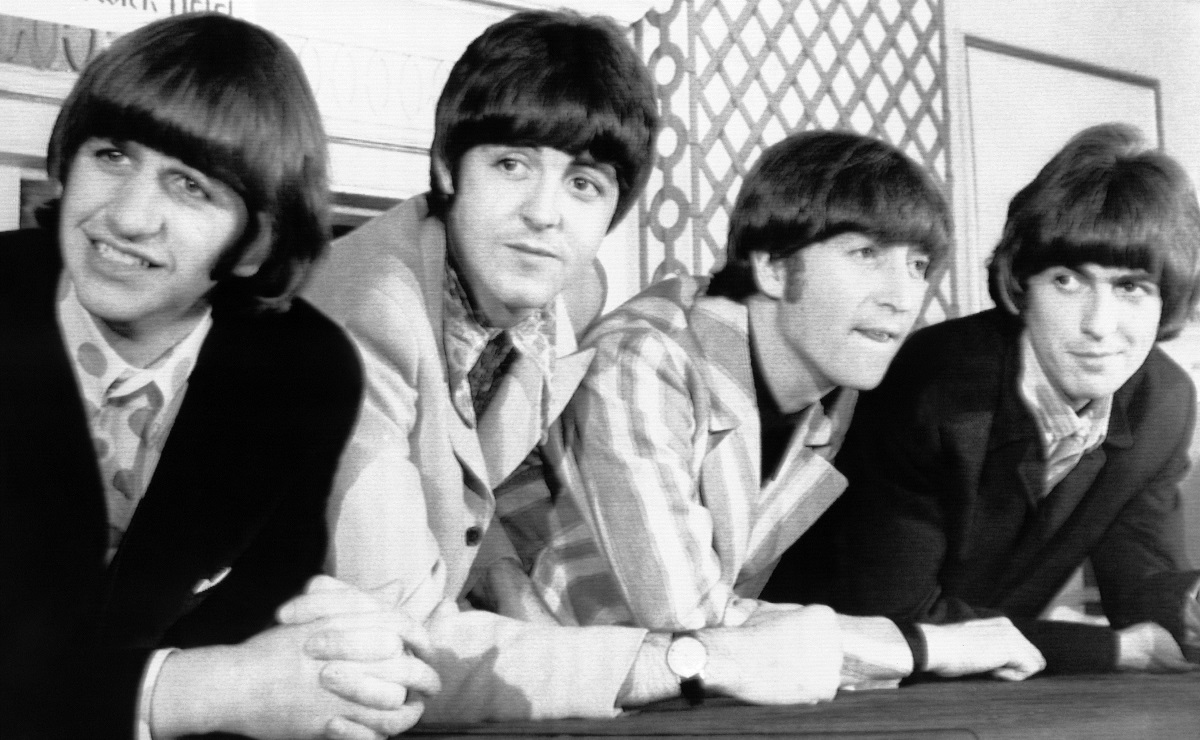Legendary Beatles Album ‘Revolver’ Turns 50 Years Old

An interview with Josh Jackson, the editor-in-chief of Paste Magazine.
John Lennon, in one of his last songs, said: “Life is what happens to you while you’re busy making other plans.”
On Aug. 5, 1966, the Beatles defined the life experience – the good, the bad and the indifferent – with the release of their album “Revolver.”
At this point in the Beatles’ career – just over two years past their earth-altering performances on “The Ed Sullivan Show” – the band was in a state of transition.
“This is where you had the Beatles going from being this amazing pop band to being this amazing experimental band that sort of set the stage for a lot of different directions that music could take,” said Josh Jackson, the editor-in-chief of Paste Magazine.
The songwriting marriage of Lennon and Paul McCartney had already been declared genius, especially with the previous year’s “Rubber Soul” … but changes were on the horizon. The most important message from “Rubber Soul,” as a whole, was its maturity. Lennon and McCartney were no longer writing simple – yes, sometimes silly – love songs anymore.
The Beatles were fed up with being a group of four guys shaking their mop tops and stomping their feet in front of tens of thousands of screaming mobs. They wanted to be respected musicians and songwriters. Tracks like the agreeable-but-not-great “Hold Me Tight” and “Thank You Girl” were passe. It was time to move on.
Already burned out from working “eight days a week” “inside the eye of the hurricane,” (Lennon’s phrase) there was something else that brought a new outlook. By the time work started on “Revolver,” three Beatles (all but McCartney) had taken LSD. That led to a little bit of tension in the group.
“There was a lot of peer pressure in the Beatles,” McCartney said in the book “The Beatles Anthology.”
The ever-restless Lennon, in particular, was looking for a new challenge. He was 25 years old, with more money and fame than he had ever expected. To borrow a phrase from his first-person-influenced “Nowhere Man,” the world was at his command. In 1966, he declared in The London Evening Standard that the Beatles were “more popular [not better] than Jesus,” a statement that went fairly unnoticed in Great Britain.
The exact opposite reaction exploded in the U.S., resulting in bonfires, boycotts and death threats. Lennon, not for the first or last time in his life, put his Beatles boot in his mouth. But this was the first instance where things went totally sour. He wanted something to help escape the madness of being in the Beatle palace, and LSD was his solution for now and it profoundly affected his writing.
“The Beatles really wanted to sort of push the limits here of what an album could be,” said Jackson.
“Revolver” opens with a few electronic squiggles, a throat-clearing cough from McCartney and a grumpy 1-2-3-4 countdown from George Harrison. And then we’re off, with Harrison’s “Taxman,” Featuring cynical lyrics about the greedy government (“Let me tell you how it will be/There’s one for you, 19 for me”) and a blistering guitar solo from McCartney, “Taxman” starts “Revolver” rocking hard.
It’s followed by McCartney’s “Eleanor Rigby,” which features not a single guitar or even Ringo Starr’s drums. Backed by classical instruments, McCartney tells the tale of a lonely spinster who “picks up the rice in a church where a wedding has been.”
McCartney proved 1965’s “Yesterday” was no fluke. By this time, he had already wowed industry insiders and much of the music world. On top of that, millions of teenage girls had posters of him on their bedroom walls.
Lennon makes his debut on “Revolver,” with cut three, “I’m Only Sleeping.” As is hinted to in the title, the song is about a drug experience, most likely LSD. Midway through the song, Harrison’s guitar solo is played backward giving an altogether unique and unexpected snarl. It was one of the latest tricks – recording backward – the Beatles were experimenting with. Something like this would likely not have worked – let alone been considered – for songs like “A Hard Day’s Night” or “Please Please Me.”
In fact, the entire experimental feel for “Revolver” began on its first session. Lennon’s “Tomorrow Never Knows” was based on the words of the Tibetan Book of the Dead, and at one point Lennon wanted monks chanting in the background. Producer George Martin was eventually able to convince Lennon that his wish was impractical. But studio trickery was not.
That’s why Martin and the Beatles added tape loops and other effects to the song’s muscular rhythm track with Starr’s drumming. Although “Tomorrow Never Knows” (the title came from a “Ringo-ism”) ended up as the last song on “Revolver,” it was the first recorded, and it very much set the tone for the entire recording process.
McCartney was on a tear, with instant classics like his effective tearjerker “For No One,” the glass-is-half-full “Good Day Sunshine” and “Here, There and Everywhere”, a ballad too fragile to touch. McCartney said he wrote the ballad, inspired by his then-girlfriend Jane Asher, on a sunny day at Lennon’s pool. Not long before his death, Lennon told Playboy that it was “one of my favorite songs of The Beatles.”
“Revolver” also features a Starr-sung track, one that would go down as one of the band’s biggest and most recognizable songs. “Yellow Submarine” came to McCartney in a dream, the same way “Yesterday” did.
It tells the story about a man who sailed to sea, and that there are a bunch of people who live in a yellow submarine, a yellow submarine, yellow submarine. The track, featuring Starr’s next door neighbor delivery (and a lyrical assist from Lennon and folk-singer Donovan), topped the charts, and became the title track for the band’s 1968 animated film. Harmless, childish fun. In other words, the exact opposite of “Yesterday.”
In what should be another musical train-wreck (there is no logical reason to explain how “Eleanor Rigby” sounds so good after “Taxman,” but it does) “Yellow Submarine” is followed by another Lennon track “She Said, She Said.” Based on an acid trip with Peter Fonda, Lennon draws a haunting tale (“I know what it’s like to be dead/I know what it is to be sad.”) over Harrison’s graffiti-like guitar lines.
There were no “filler” songs from Lennon, McCartney or Harrison on “Revolver.” The non-hits were strong album tracks. “And Your Bird Can Sing” soars thanks to chiming guitars and the standard John-Paul-George vocal magic. The bouncy rocker “Doctor Robert” is a toe-tapper about a real-life New York doctor who gave “vitamin” shots to celebrities and it helped Lennon keep his “bad boy” image in tact with lyrics about a medical man who “helps you to understand” after taking drinks “from his special cup.”
McCartney, meanwhile, makes his final vocal lead with “Got to Get You Into My Life,” the album’s penultimate song. Featuring Motown-like horns, McCartney gives one of his best, ice-cold screaming performances. When Little Richard famously told McCartney: “Paul, you know I taught you everything you know,” McCartney readily agreed.
As McCartney wailing his lungs on top of blaring trumpets fades out, listeners go head-first into “Tomorrow Never Knows,” a definitive closer that leaves listeners wanting more … and forces them to go back to the start.
Jackson, of Paste Magazine, said of the album’s legacy: “It’s a lot of the DNA for a lot of the music that you still hear today.”
The Beatles’ follow-ups to “Revolver” were the legendary “Strawberry Fields Forever”/”Penny Lane” single and “Sgt. Pepper’s Lonely Hearts Club Band,” both landmark recordings. But the Beatles would have never arrived there without “Revolver.”
9(MDAxODM0MDY4MDEyMTY4NDA3MzI3YjkzMw004))






